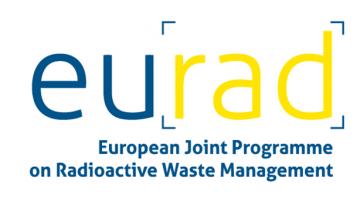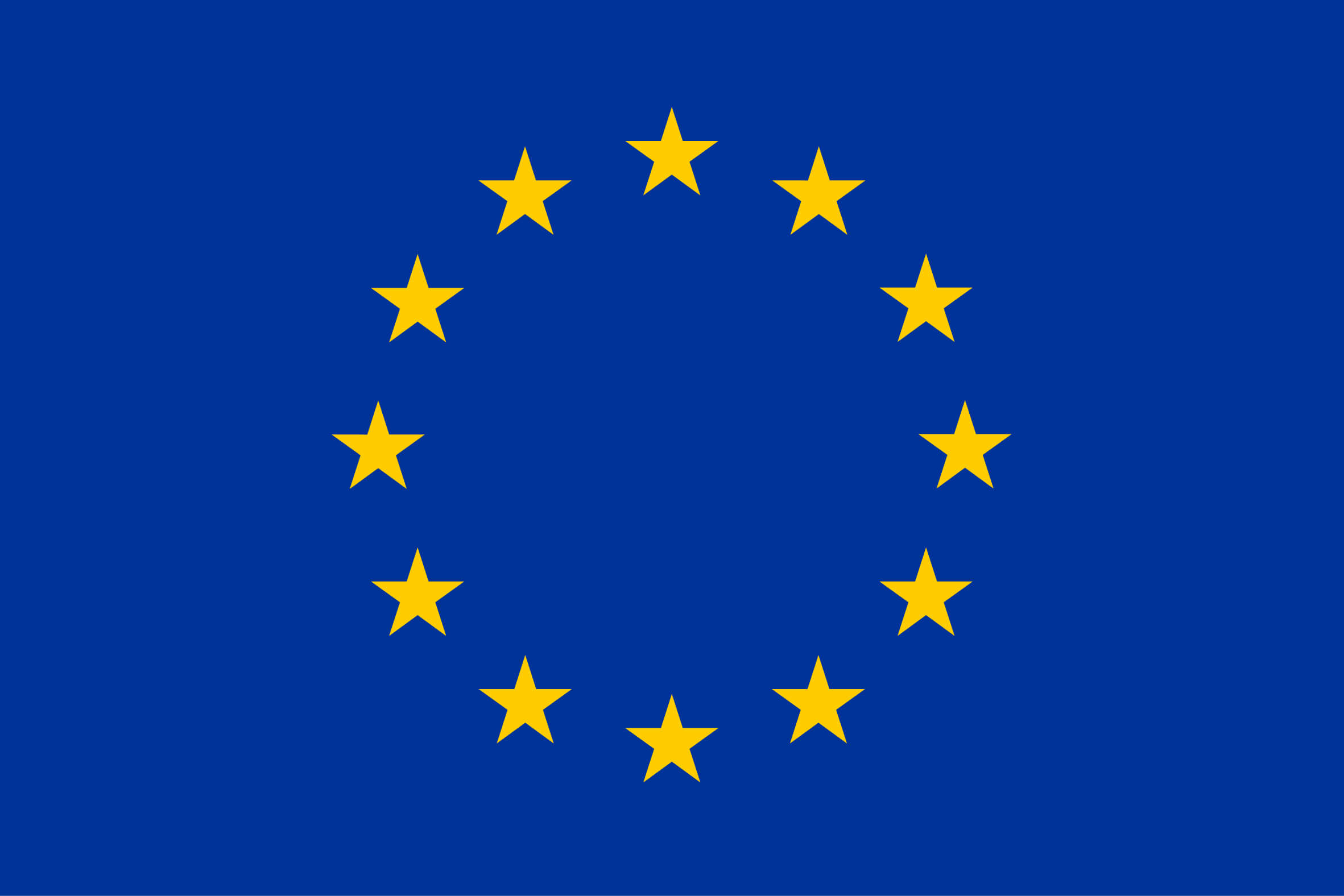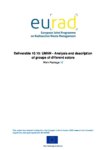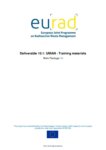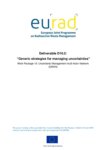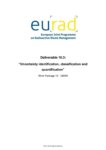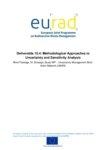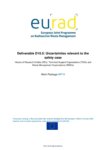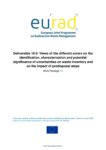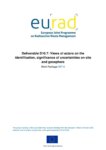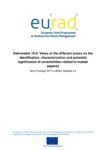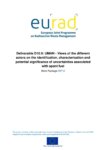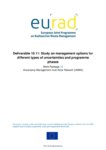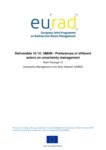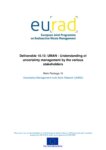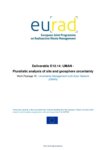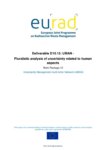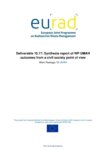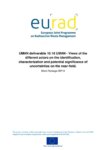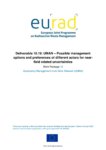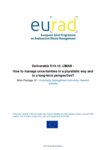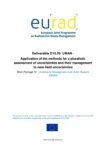UMAN: Understanding of uncertainty, risk and safety (EURAD WP)
Project Dates: 1st June 2019 – 30 May 2024
Project Status: Finished
Project Website: https://www.ejp-eurad.eu/implementation/wp10-understanding-uncertainty-risk-and-safety-uman
UMAN was a Strategic Studies Work Package (WP) within EURAD. It aimed to further refine methods of making sensitivity and uncertainty analyses, and develop a multi-actor network for uncertainty management.
Overview
Decisions associated with radioactive waste management programmes are made in the presence of irreducible and reducible uncertainties. Several choices made based on limited information in early programme phases may also have to be confirmed before or during the construction and operation of the facility. At the end of the process, uncertainties will inevitably remain, but it should be demonstrated that these uncertainties do not undermine safety arguments. Hence, the management of uncertainties is a key issue when developing and reviewing the safety case of waste management facilities and, in particular, of waste disposal facilities due to the long timescales during which the radiotoxicity of the waste remains significant.
As noted under the EURAD Roadmap Theme 1 – “Managing implementation and oversight of a radioactive waste management programme” – a clear strategy and commitment to the involvement of stakeholders was essential to the decision-making process at all stages of a waste management programme. It was also explained that scientific activities associated with a waste management programme (site characterisation, process modelling, safety assessment etc.) are evolving over time, leading to new viewpoints and sometimes new uncertainties and they are less predictable of the outcome, duration or resources that may eventually be required. Accounting for such uncertainty thus became a key part of successful programme planning, and benefited from continued sharing of methodologies and experience.
Therefore, uncertainty was a cross-cutting issue of the different themes and stages identified in the Roadmap. The term “uncertainty” was also explicitly mentioned in the title of several activities of common interest considered as having a medium or a high priority: Inventory uncertainty (1.1.1), Site uncertainty treatment (3.1), Geological uncertainties (1.6.2), Uncertainty treatment (2.1.3). Furthermore, RD&D activities were aimed at improving the state-of-knowledge and thus reduced uncertainties. Understanding the contribution of these activities to the overall uncertainty management was important for the different actors involved in the decision-making process, as well as for the identification of future EURAD priorities and activities.
Consequently, the raison d’être of this WP was to provide an opportunity to the organisations and different actors of the member states to share their experience and views on uncertainty management and to identify emerging needs associated with this topic. The WP also contributed to understanding the added value of RD&D activities for the safety case and the decision-making process. It also contributed to the vision of EURAD by fostering mutual understanding and trust between Joint Programme (JP) participants.
Objective
This WP was dedicated to the management of uncertainties that are potentially relevant to the safety of different radioactive waste management stages and programmes. It included various activities such as exchanges on views, practices and uncertainty management options and the review of existing strategies, approaches and tools. Interactions between different types of actors including civil society were central to this WP. These interactions were aimed at meeting the shared objective of fostering a mutual understanding of uncertainty management strategies, approaches and preferences. A particular focus was put on uncertainties which directly link with RD&D WPs and with a high (and where relevant medium) priority subdomain of the SRA, for which exchanges of information and experiences and strategic studies have been identified as beneficial by the JP actors themselves. The WP considered past and present EU projects on the topics of interest and other initiatives carried out at an international level such as IAEA and NEA so as to avoid duplicating existing work. The WP allowed identification of the contribution of past and on-going RD&D projects to the overall management of uncertainties, as well as remaining and emerging issues associated with uncertainty management that could be addressed in subsequent waves of EURAD.
Closing words from WP Leader
WP UMAN synthesizes the existing knowledge and experience on managing uncertainties associated with the radioactive waste management in few concepts (uncertainties classification scheme, a general approach of uncertainty management) agreed by the key categories of actors, including civil society, and identified actions that can reduce, avoid or mitigate the impact of uncertainties on the safety of the disposal system as described in the safety analysis or safety case.
All these results represent not only a simple collection of individual elements. They integrate a wide diversity of views and experiences and capitalize on different national programmes and research achievements into commonly agreed concepts, approaches, and tools to be used in uncertainty management. Therefore, these results have the added value of a pluralistic views understanding of the main actors (WMOs, TSOs, REs and CS) reached in the uncertainty management process, from the identification, selection, characterization to the uncertainty treatment.
Systematic dialogue between actors facilitated by UMAN workshops and seminars, and especially exchanges with civil society representatives, continuously improved mutual understanding and contributed to broadening individual perspectives. These dialogues brought together complementary views, which were integrated into an overall uncertainty management approach that was successfully tested in the CORI-UMAN-ICS dialogue.

